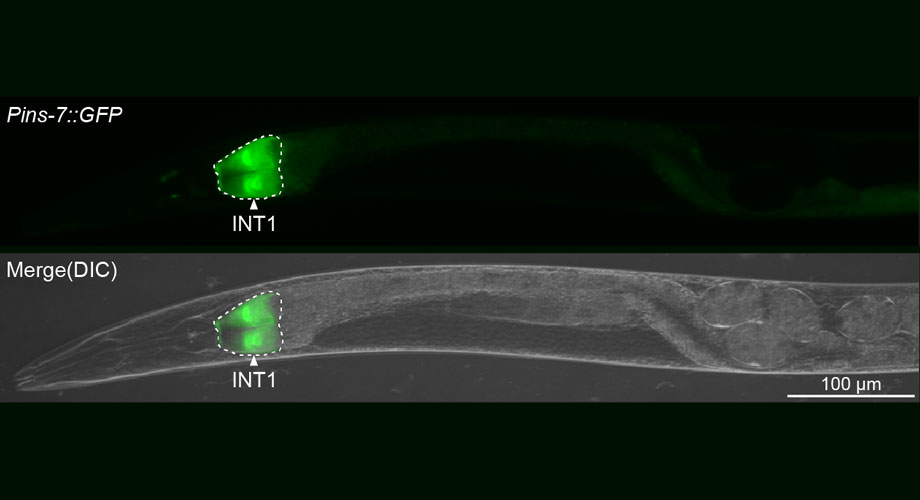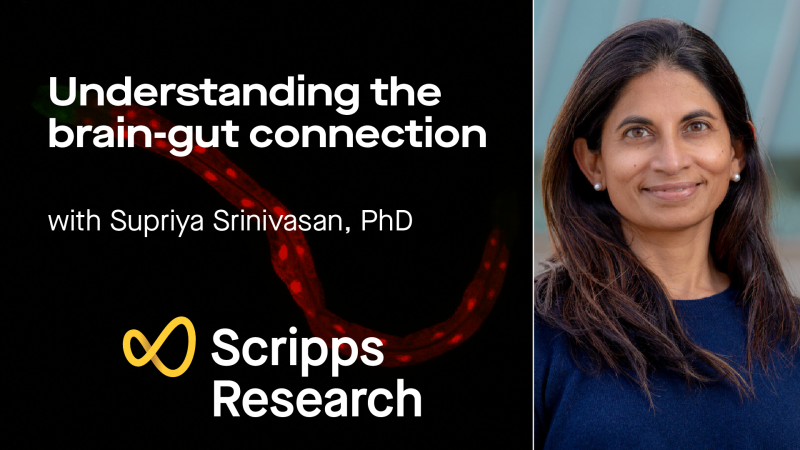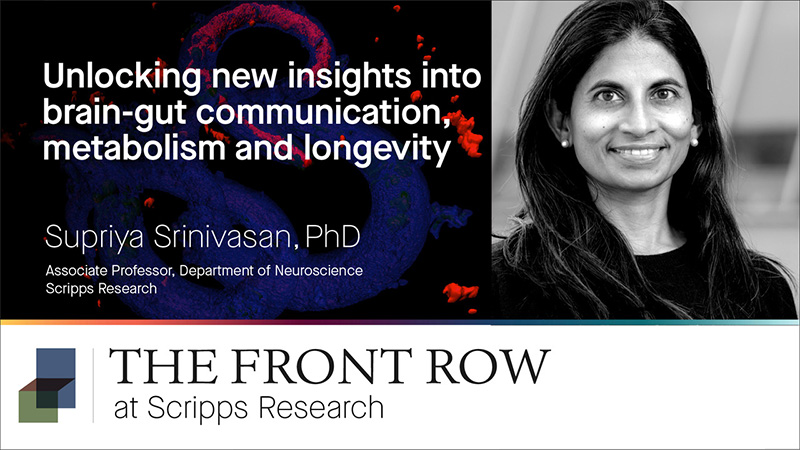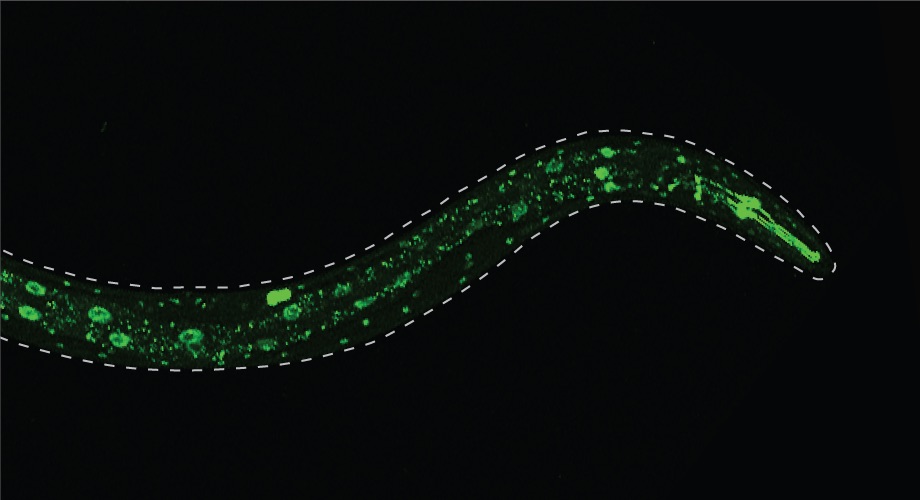Front Row Lecture Series
The gut-brain axis: A key to metabolism and longevity
Supriya Srinivasan, PhD
Professor, Department of Neuroscience
Wednesday, February 26, 2025
4:00 p.m. PT | 7:00 p.m. ET
The gut-brain axis: A key to metabolism and longevity
How do our gut and brain communicate with one another, and how do they influence our metabolism, our behavior, and the aging process? Scripps Research neuroscience professor Supriya Srinivasan is dedicated to answering these pressing questions using modern genetic and molecular tools across different experimental systems. Srinivasan will reveal the intricacies of the gut-brain networks that regulate energy regulation and fat metabolism, as well as their impact on lifespan. Discover how her work could lead to new therapies that restore a healthy metabolism and tackle dysregulation.
Reserve your seat! Join the community in person on the Scripps Research campus or attend virtually via Zoom webinar.
Speaker Spotlight

Gut molecule slows fat burning during fasting
Scripps Research scientists discovered a molecule produced by roundworm intestines that signals the brain to slow fat loss when food is not available.
Read press release

Understanding the brain-gut connection with Supriya Srinivasan, PhD
Supriya Srinivasan, PhD, studies metabolism, and the brain-gut connection through experiments with Caenorhabditis elegans, or C. elegans. Though the worms are only about 1 millimeter long, much of their genome is also seen in humans, performing the same functions—including genes that control metabolism, the gut and the nervous system—making it an ideal animal for longevity studies…
Watch video

Unlocking new insights into brain-gut communication, metabolism and longevity (2021)
The complex biological processes that regulate our metabolism are closely linked with many aspects of our health, from our weight and mental wellbeing to how long we live. Scripps Research neuroscientist and associate professor Supriya Srinivasan, PhD, leads a team that uses state-of-the-art molecular and genetic tools to investigate how our genes, gut-brain communication and other factors are implicated in metabolism and longevity—and how disease can develop when our internal balance goes awry…
Watch lecture

Feedback loop within intestinal cells may explain why prolonged fat-burning doesn’t diminish longevity
In studies involving roundworms, Scripps Research scientists discover a cellular process that may hold implications for treating metabolic diseases.
Read press release
